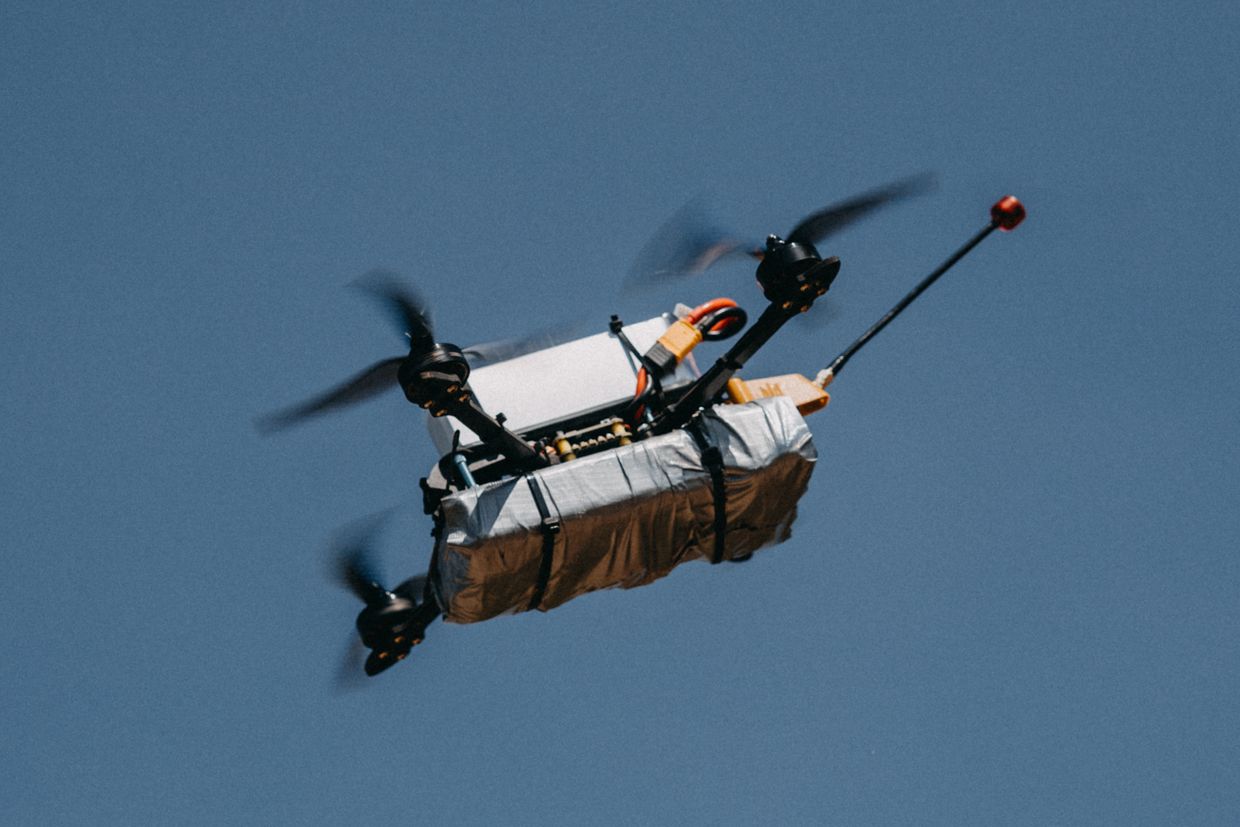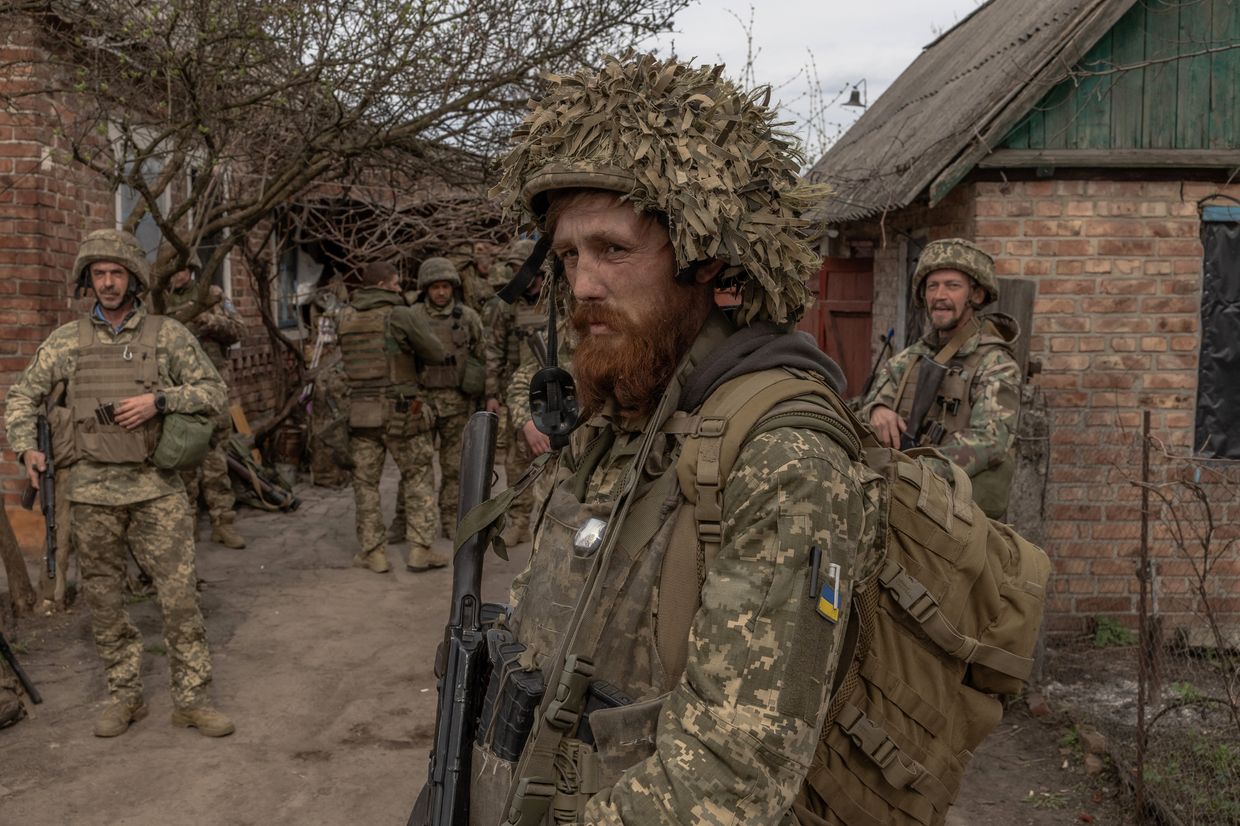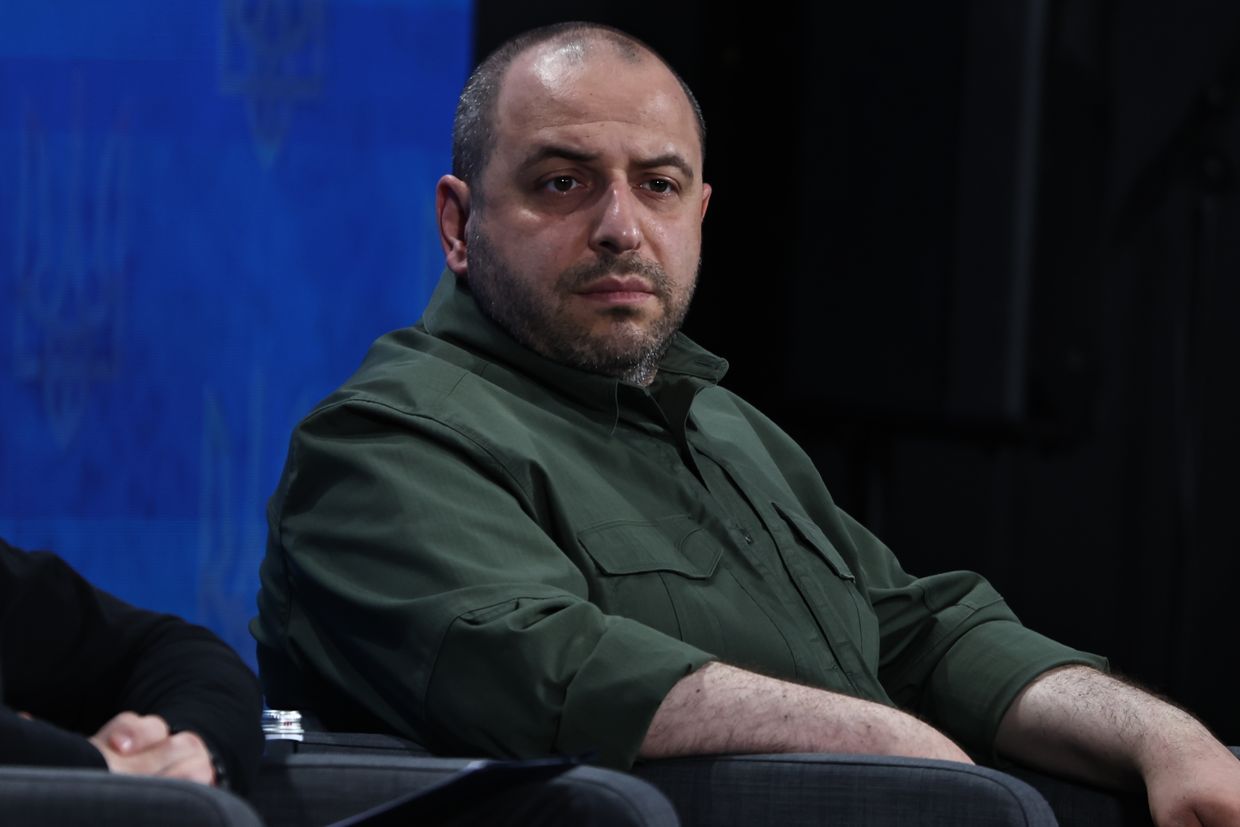
Ukraine war latest: For the first time, Ukraine attacks Russian positions using solely ground, FPV drones
Key developments on Dec. 21-22:
- For the first time, Ukraine attacks Russian positions using solely ground, FPV drones
- Over 12,000 civilians killed in Ukraine during Russia's full-scale war, UN says
- Two Russian airports suspend flights after Ukrainian drones target Kazan, media, officials report
- Slovak PM Robert Fico meets with Putin in Moscow
- Full restoration of state registries expected within weeks, Justice Ministry says after major cyberattack
Ukrainian forces successfully attacked Russian positions using only ground and first person view (FPV) drones instead of infantry, an army spokesperson claimed on Dec. 20.
Speaking on national TV, Sergeant Volodymyr Dehtiarov, spokesperson for the Khartiia Brigade of the National Guard of Ukraine, said “dozens of units of robotic and unmanned equipment” supported by surveillance drones were used in the assault near the village of Lyptsi, north of Kharkiv.
Dehtiarov said the drones included ground systems equipped with machine guns, and kamikaze FPV drones.
He did not specify when the attack took place.
Commenting on the reports, the Institute for the Study of War (ISW) said the attack highlighted the difference in attitude towards front line troops shown by Moscow and Kyiv.
"Ukrainian officials have repeatedly highlighted Ukraine's efforts to utilise technological innovations and asymmetric strike capabilities to offset Ukraine's manpower limitations in contrast with Russia's willingness to accept unsustainable casualty rates for marginal territorial gains," the ISW said.
Russian military losses in its full-scale invasion of Ukraine have exceeded 750,000 Russian soldiers, and are expected to surpass 1 million Russian troops within six months, U.K. Under-Secretary of Defense Luke Pollard said on Dec. 19.
The U.K.'s latest estimate is in line with figures from Ukraine's General Staff, which, as of Dec. 19, sits at 768,220 troops lost since the start of the war. The figures do not specify killed or wounded, though the overall consensus is that it includes dead, wounded, missing, and captured.
"It is highly likely that they have sustained significant combat casualties, whilst only achieving limited tactical gains," Pollard told British parliamentarians on Dec. 19.
Russia has gained ground in eastern Ukraine and Kursk Oblast in recent months but at the cost of heavy casualties.
Russian losses reached record highs in November and December, with a daily high of 2,030 troops lost in November, marking the highest daily loss since the beginning of Russia's full-scale invasion in 2022. Russian losses exceeded 45,000 troops and $3 billion worth of equipment in November.
President Volodymyr Zelensky revealed in a rare statement that Ukraine had lost 43,000 soldiers on the battlefield since the start of Russia's full-scale invasion.
Ukraine is developing numerous new types of drone systems.
Military tech developers created a new unmanned ground vehicle (UGV) with the ability to carry explosives and drive under armored vehicles, the project's spokesperson, Viktoriia Kovalchuk, told Business Insider on Oct. 25.
The UGV, named Ratel S or Honey Badger, was developed as part of the Brave1 government initiative.
The initiative was launched in April to invest in defense tech innovations that can be utilized by the Ukrainian military, as well as serve as a platform to connect the industry's stakeholders.
"The main idea is that the robot (Ratel S) is used as a mobile warhead that carries anti-tank mines or other explosive devices," said Kovalchuk, adding that it can run for 40–50 minutes at an average speed or for up to two hours at a slower speed.


Over 12,000 civilians killed in Ukraine during Russia's full-scale war, UN says
Over 12,340 civilian deaths have been recorded in Ukraine since Russia launched its full-scale invasion in February 2022, Under-Secretary-General of the United Nations Office for Disarmament Affairs (UNODA) Izumi Nakamitsu said during a U.N. Security Council meeting on Dec. 20.
The U.N. report on casualties comes as Russian President Vladimir Putin escalates threats against Ukrainian cities, including threatening on Dec. 19 to launch an Oreshnik intermediate-range ballistic missile (IRBM) against Kyiv.
The Office of the United Nations High Commissioner for Human Rights (OHCHR) recorded civilian casualties in Ukraine from Feb. 24, 2022 to Nov. 30, 2024, Nakamitsu said. Over 12,340 civilians were killed and more than 27,836 were wounded during that period.
The U.N. found that in 2024, aerial bombs and long-range weapons caused a greater number of casualties than in the previous year, Nakamitsu said.
Aerial bombs killed 341 civilians and wounded 1,803 between Jan. 1 and Nov. 30, according to data from the U.N. Human Rights Monitoring Mission in Ukraine. The figures represent a threefold increase in deaths and sixfold increase in injuries from 2023.
The OHCHR also found that 42% of Ukrainian civilian casualties in the month of November resulted from Russian attacks with long-range weapons, a "significant increase" from prior months.
Russia intensified aerial strikes against densely populated Ukrainian cities in October and November 2024. Drone strikes surged to record levels and Russia dropped at least 100 guided bombs per day nearly every day between Nov. 1-20.
Repeated attacks against residential neighborhoods in large cities, including Kharkiv, Odesa, and Sumy, led to high numbers of killed and injured victims.
Russia on Nov. 21 launched an Oreshnik missile against the city of Dnipro, supposedly as a response to the U.S. and the U.K. lifting restrictions on Ukraine's long-range strikes inside Russia.
Putin has since used threats of Oreshnik strikes to intimidate Ukraine and scare off Western support for Kyiv.
Nakamitsu said that Russia's escalating attacks are cause for "grave concerns."


Two Russian airports suspend flights after Ukrainian drones target Kazan, media, officials report
An airport in the Russian city of Kazan has suspended flights after Ukrainian drones hit several buildings, Radio Free Europe/Radio Liberty (RFE/RL) reported on Dec. 21.
According to the outlet, eight drones attacked the city in the morning hours, with five of them hitting residential buildings across three districts of the city.
Russian independent news outlet Meduza reported that four of the eight drones crashed into two high-rise residential buildings and one into a low-rise residential building.
Russian state media Kommersant reported that the airports of both Kazan and the neighboring city of Izhevsk had suspended flights.
The Kazan mayor's office has said that schools have been "selectively" evacuated, according to Meduza.
No casualties have been reported at this time.
Russian state media outlet Tass reported that a drone attempting to attack an industrial plant "missed its target," according to the press service of the governor of Tatarstan, the republic in which Kazan is located.
Kyiv has intensified its drone strike campaign on Russian territory, targeting military and industrial facilities to weaken Russia's war effort in Ukraine.
On Nov. 25, drones operated by Ukraine's military intelligence agency (HUR) struck an oil depot in the western Russian city of Kaluga. These attacks follow Ukraine's first use of U.S.-made ATACMS missiles against Russia and subsequent launches of UK-made Shadow missiles, made possible after Washington eased long-range attack restrictions.


Slovak PM Robert Fico meets with Putin in Moscow
Slovak Prime Minister Robert Fico met with Russian President Vladimir Putin at the Kremlin on December 22, according to the state-owned TASS news agency.
This marked his first visit to Moscow since returning to power in 2023.
The trip was reportedly planned a few days earlier, with discussions likely centered on Russian gas supplies, though details will emerge after the meeting.
Fico becomes the third European leader to visit Russia since its invasion of Ukraine, following Austria’s Karl Nehammer and Hungary’s Viktor Orbán.
This visit comes as Slovakia seeks to secure a gas supply deal for 2024, despite Ukraine's firm stance against renewing its gas transit agreement with Gazprom.
At a prior European Union summit, Fico criticized Ukraine’s position, saying, "We are demonstrably facing a gas crisis thanks to President Zelensky."
Slovakia has a long-term contract with Russia's state-owned energy giant Gazprom and estimates alternative arrangements could cost an additional €220 million ($228.73 million) in transit fees.


Full restoration of state registries expected within weeks, Justice Ministry says after major cyberattack
The Justice Ministry has faced "serious challenges" after the largest cyberattack in months targeted state registries, but a full restoration is expected within two weeks, First Deputy Justice Minister Mykola Kucheryavenko said on Dec. 22.
In comments to the Kyiv Independent, Kucheryavenko said that the precise date of the full restoration of the registries would be more clear in the coming days.
"The aggressor's actions were aimed at destabilizing the work of the state registries," Kucheryavenko said. "The goals of the attack were not achieved."
The cyberattack targeted several government services on Dec. 19, including state registers overseen by the Justice Ministry, Justice Minister Olha Stefanishyna said. Officials say the cyberattack had been prepared for months. Ukraine launched a criminal investigation.
The Security Service of Ukraine (SBU) suggested on Dec. 20 Russia's military intelligence agency (GRU) could be behind the cyberattack on Ukraine's government services.
The former Justice Minister, Denys Maliuska, told Ukrainian media outlet Ukrainska Pravda that the majority of the information Russia stole was "already freely available," though closed a register were also affected.
"This is one of the most closed register where information is stored, in which there is no secret, it would seem — that someone was born or married," Maliuska told Ukrainska Pravda.
"But at the same time, there is a secret that is strictly protected by law — the secret of adoption," he added.
Kucheryavenko said that "preliminary estimates no information from the registries has been lost," adding that the ministry has backup copies of the data.
Behind the scenes of the fierce battles on the front line, both sides are fighting a cyberwarfare crucial to the war efforts.














![[Solved] Russian Attacks Have Slowed in Pokrovsk. Here’s Why.](https://24ukraine.com/wp-content/smush-webp/2025/02/Solved-Russian-Attacks-Have-Slowed-in-Pokrovsk-Heres-Why-320x180.jpg.webp)
